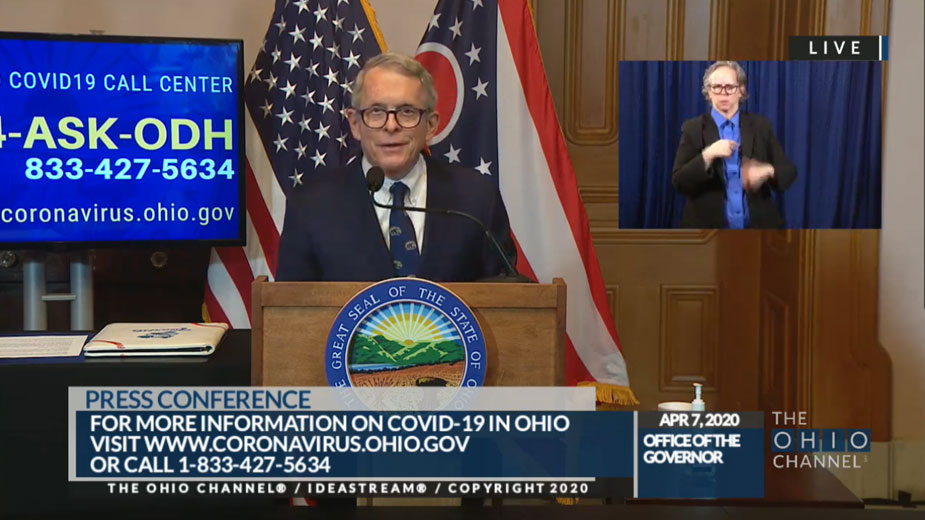DeWine Recommends Another 167 Inmates for Release
YOUNGSTOWN, Ohio — As more instances of COVID-19 have occurred in the state’s prisons, Gov. Mike DeWine is recommending more inmates be granted early release.
“Prisons post a unique challenge in this pandemic. Social distancing in the general population, as you know, is helping us flatten the curve,” DeWine said during his daily briefing Tuesday. “But when we’re dealing with prisons, prison inmates, correction officers, it’s a different situation. Social distancing becomes much more challenging.”
Under Ohio Revised Code 2967.18, the administration has the authority to notify the state’s Correctional Institution Inspection Committee of a need for early releases because of an overcrowding emergency. With some 49,000 inmates in Ohio prisons, some of whom living in close quarters, “we are in an emergency – an emergency that makes the situation more urgent,” DeWine said.
In an effort to protect prison staff, inmates and the public, the administration is requesting the “smart and targeted” release of 167 inmates, he said. DeWine made it clear that convicted murderers, sexual predators, and inmates convicted of kidnapping or abduction, ethnic intimidation, making terrorist threats or domestic violence will not be let out.
“We have no intention of releasing them back into society,” DeWine said.
Others who were screened out include inmates who have been denied judicial release in the past, have prior incarceration in Ohio, are interstate offenders, those who have warrants or detainers from other states, and those who have seriously violated prison rules in the last five years.
The first group is comprised of 141 inmates who are serving sentences in minimum security prisons and are within 90 days of being released. These inmates live in open bays with anywhere from 80 to 300 people in a “large open room,” he said, and sleep in bunk beds with three feet or less between them.
“Because of this setup, this is where we have the potential for the fast spread of COVID-19,” DeWine said.
The second group is comprised of 26 inmates who are 60 years or older who have a chronic health condition “that makes them obviously more vulnerable to COVID-19,” he said. Inmates considered for early release have served at least half of their sentence and have gone through the same screening as the previous group, with the only difference being they haven’t had a serious violation of prison rules in the last six years, and they aren’t habitual offenders.
“I cannot quickly grant a commutation,” DeWine said. “Obviously, this needs to be done quickly.”
Under Ohio law, judges, prosecutors and victims must have 60 days notice of an inmate’s release after the proper paperwork has been filed, DeWine said. But because of the medical vulnerability of these inmates, even though some might not qualify for early release, the administration is asking Ohio judges and prosecutors associated with the inmates to waive the 60-day notice “so we can take these cases directly to the parole board,” he said.
Ultimately, decisions on whether to grant an inmate’s early release will be determined locally. The parole board is ready to meet on Friday to begin hearing each case, as is the statutory requirement, he said.
“Victims must and should be given notice” and will have the opportunity for their voices to be heard, DeWine added.
If the parole board recommends sentences to be commuted, the board can also recommend additional conditions. DeWine has the authority to accept the conditions and add some of his own, he said. If any of the conditions are violated, the inmate will be sent back to prison to serve the remainder of his sentence, he said.
This is the second round of inmates recommended by the DeWine administration for early release. On April 3, the governor recommended the release of 38 nonviolent prisoners, including 23 women who are either pregnant or have a child that was born while they were serving their sentence, and 15 individuals who are over the age of 60.
“These are all tough decisions,” DeWine said. “We’re trying to take a measured and responsible approach that protects the public, but also tries to minimize the spread of this virus in our prisons.”
In the coming days, a list of the prisoners will be made available to the public.
Copyright 2024 The Business Journal, Youngstown, Ohio.



